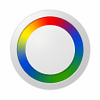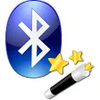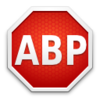The latest web browser by Google that you can use on devices that employ Linux
The latest web browser by Google that you can use on devices that employ Linux
Vote: (75 votes)
Program license: Free
Developer: Chrome OS
Version: 1.9.1077
Works under: Windows
Vote:
Program license
(75 votes)
Free
Developer
Version
Chrome OS
1.9.1077
Works under:
Windows
Pros
- High level of customization in the form of themes and extensions
- Minimalist interface that runs smoothly while still making everything you need accessible
Cons
- Doesn't run quite as fast as Firefox
Google's Chrome is one of the best web browsers around, and it's even available for Linux users. Google has an almost supernatural understanding for what their customers want. They reinvented the web server based email service with Gmail and created a new way of approaching office suites with the cloud-based Google Suite. But their biggest innovation may have been Chrome. It took the fundamentals of browser software and folded in a number of cool new features that rewrote the design playbook. Even now, it's one of the most popular browsers around, and there's a good reason for that. Google is diligent in updating their software and making sure that it's running ahead of the curve, and it's a flexibly cross-platform piece of software. If you're running a Linux operating system for work or home, Chrome is well worth checking out, and it's completely free to use, so there's no risk for investing in it.
While this is a feature rich piece of software, all the features in the world don't count for much if it doesn't run like it should. Fortunately, Chrome is one of the most reliable browsers on the market. It runs fast and responsibly, and its security options are tight. Even without the assistance of antivirus technology, Chrome does a great job of letting you know when there are risks to your computer's integrity. That said, it's hard to say it's still the fastest browser on the market. In terms of speed, Firefox outpaces it, but the difference isn't that meaningful, and more users won't be able to discernibly notice for their everyday browsing activities.
Chrome wrote the book on modern browser design. It's built from the ground up to be minimalist, to strip out all the unnecessary elements without limiting what users can do. On that front, it succeeds admirably. Tabs, navigation, and extensions are all condensed into a wonderfully small portion of the browser, leaving you with more real estate to enjoy your web browsing. While Microsoft's more recent Edge browser actually manages to strip down the interface even more, Chrome still looks good in practice, and you an even download a huge selection of free themes you can use to personalize your experience and make your browser's design suit your sensibilities.
But in terms of features, the meat of what's available is in the form of extensions. Chrome comes supported by an impressive array of first and third party extensions that can add a whole host of new features. They occupy the same panel as the search bar and cleanly labeled, so accessing the extensions you need is always a simple process. They cover everything from practical standards like AdBlocker to more specialized extensions like the deal-finding Honey extension and an RSS reader for staying tuned in to the important news.
Pros
- High level of customization in the form of themes and extensions
- Minimalist interface that runs smoothly while still making everything you need accessible
Cons
- Doesn't run quite as fast as Firefox


